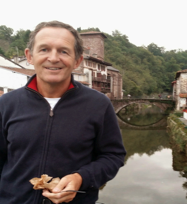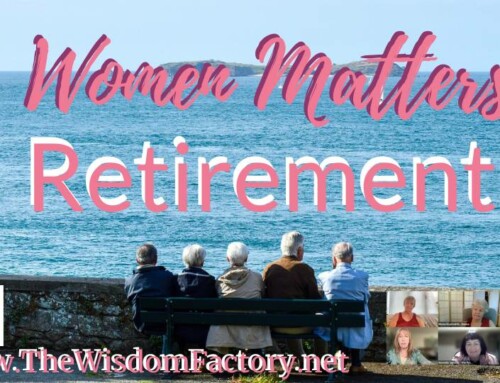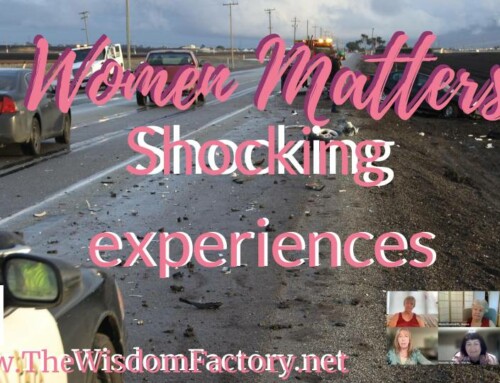
HEIDI´S INTRO
For many thousands of years people had a short life span. Only very few arrived at an old age, most people died before their 40ies birthday. Child mortality has diminished and life span increased steadily for the last couple of hundred years. Now, for the first time in history, “old age” begins about 20 years later than it used to start. Today you are not any more old with 60. You have the probability to live other 20 years in reasonable health and with enough life energy to start something new. The Third Act today is not the period before death as it used to be (this would now be the “fourth act”), it is a period of a redefined life – if we take it on as such.
Many of us over 60 are getting aware of this fact. We don’t feel old and we don’t want to be confined by the traditional expectations for people over 60. There is a difference between men and women. Men often struggle with retirement because their life suddenly loses the meaning which often was determined by what they did professionally. Women can seamlessly slip into grandmotherhood and find their meaning in taking care of the new generation. That has always been a choice for grandparents. But what if a woman decides that now, finally, she can do something different, develop her own interests instead of continuing to be in service of the family?
While society gives a lot of support for young people in their transition from the first to the second act of life, there is almost no support and encouragement for transitioning into the Third Act. Older people are not considered when looking for jobs. The work-world refuses to modify their standards and expectations which are tailored for people in their 30ies, maybe still 40ies. It doesn’t see the gift which older people bring to the table and it is not willing to adjust the modalities which would allow older people to fully take part in society and the occupational field.
Social change is slow and people who want to go ahead have to be pioneers for that change. They have to figure out by themselves how to create their life and find the meaning in their Third Act. Fortunately there are some generous people whose passion is to figure out these processes and to help others to go through them as well for not remaining alone in this very important quest of their lives. The question is only: will those people in need for help also take it? Or are they hesitant or even ashamed of needing support after having succeeded always alone in their previous life? Or is it the fear of being blamed by the family of not meeting the expectations of the younger ones when they dare to redefine themselves as an independent individual?
These are some of the questions I am discussing with Edward Kelly who, for many years, has offered his support to people in the transition period to the Third Act. His experience is that people are happy when they do the work and participate in his courses, but the main hurdle for them is, initially, to DECIDE to participate. It seems that very many people who could benefit from the inquiry into elderhood do not find the path to get the appropriate support they would need for growing into the fullness of their possibilities and of their being.
In our Conscious Ageing series we hope to encourage you to take this step. We have interviewed several people who actively offer their support in questions of getting older, finding one’s purpose, open oneself up instead of closing down, how to best take care for one’s health or even prepare for our death and for our legacy. Edward Kelly, the guest in this interview, has done theoretical and practical work in order to support the entry into the Third Act, he is certainly a perfect go-to person.
ABOUT DR. EDWARD KELLY
 Edward Kelly is an entrepreneur, researcher and facilitator. In the past few years he has led over forty workshops in Intel, Accenture, Google, and others. He is a regular presenter on the MBA and Innovation programmes at University College Dublin (UCD) and has published articles on adult development in the ILR and JITP. More recently he has facilitated workshops, developed programmes and has run a conference on The new Third Act in life. He is currently writing a book on adult development and leadership. Prior to this, he ran a successful telecoms business which he founded in 1995 and before that organised and participated in ‘The Great London to Sydney Taxi Ride’ in 1988, which entered the Guinness Book of Records for the longest most expensive taxi ride in history. He holds an ITC, BA, MBA and PhD. He can be contacted at: edward@thethirdact.ie, on +353 86 810 2000 and at www.thethirdact.ie.
Edward Kelly is an entrepreneur, researcher and facilitator. In the past few years he has led over forty workshops in Intel, Accenture, Google, and others. He is a regular presenter on the MBA and Innovation programmes at University College Dublin (UCD) and has published articles on adult development in the ILR and JITP. More recently he has facilitated workshops, developed programmes and has run a conference on The new Third Act in life. He is currently writing a book on adult development and leadership. Prior to this, he ran a successful telecoms business which he founded in 1995 and before that organised and participated in ‘The Great London to Sydney Taxi Ride’ in 1988, which entered the Guinness Book of Records for the longest most expensive taxi ride in history. He holds an ITC, BA, MBA and PhD. He can be contacted at: edward@thethirdact.ie, on +353 86 810 2000 and at www.thethirdact.ie.









Leave A Comment